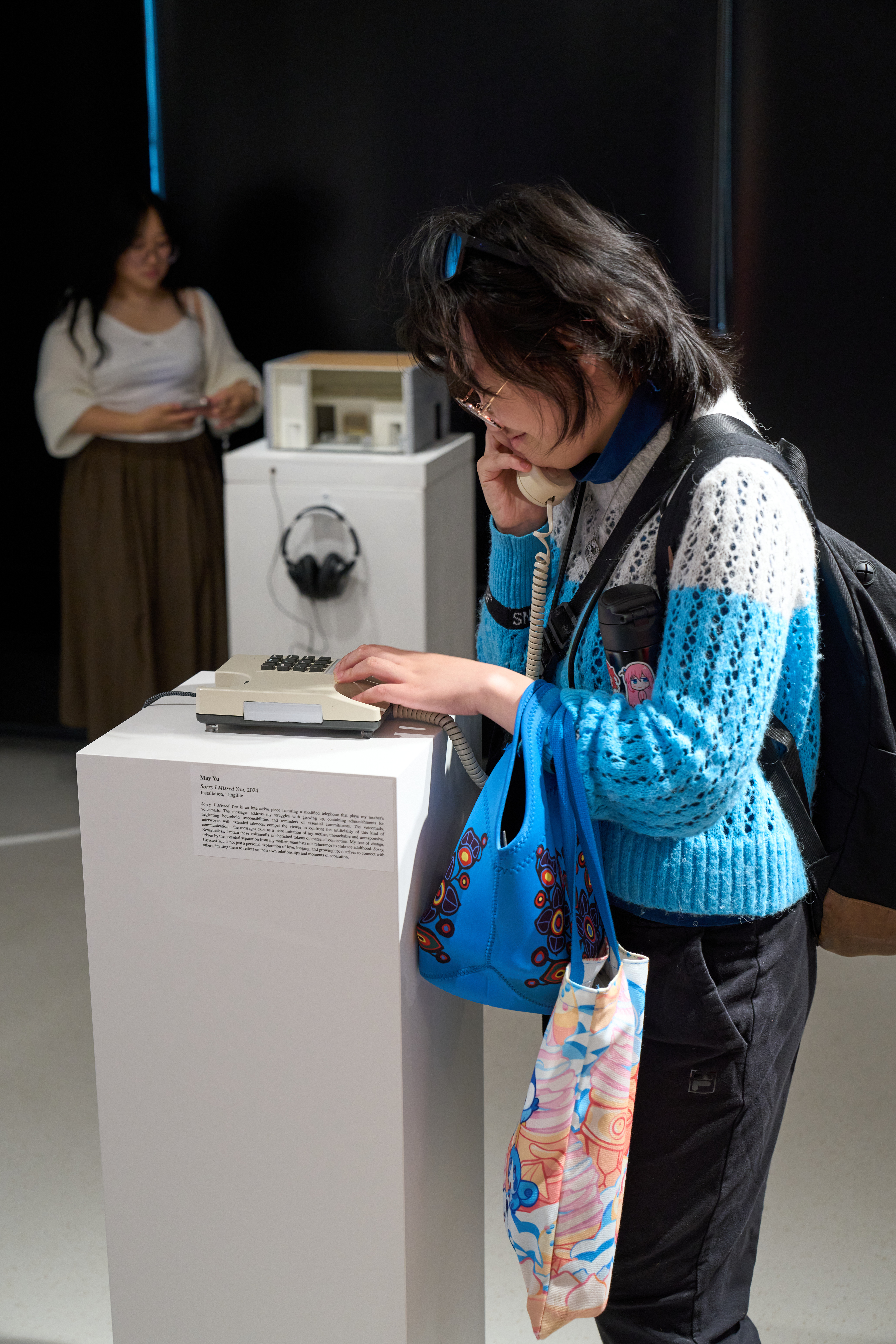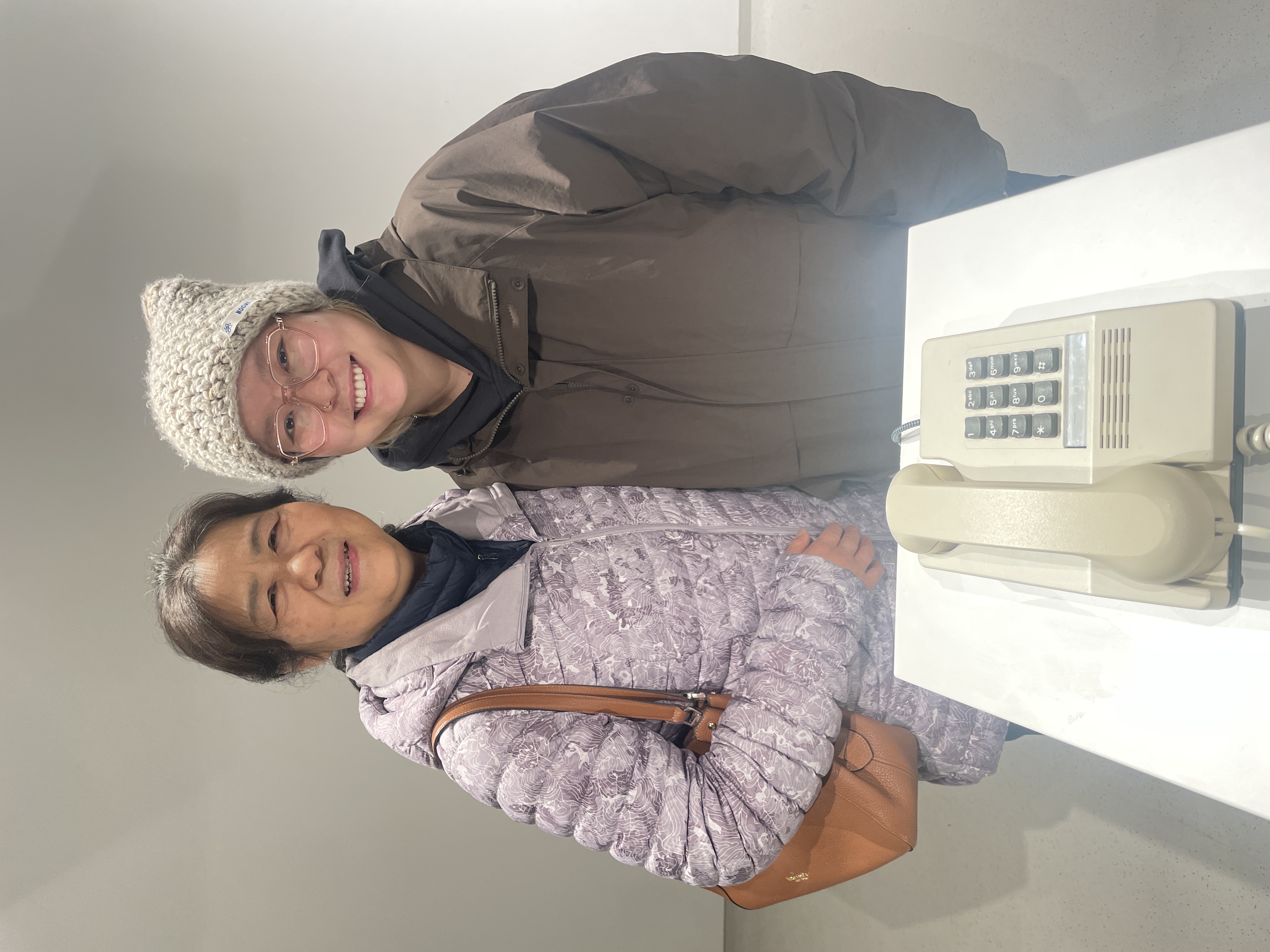Sorry, I Missed You
Sorry, I Missed You is an interactive piece featuring a modified telephone that plays my mother's voicemails. The messages address my struggles with growing up, containing admonishments for neglecting household responsibilities and reminders of essential commitments. The voicemails, interwoven with extended silences, compel the viewer to confront the artificiality of this kind of communication – the messages exist as a mere imitation of my mother, unreachable and unresponsive. Nevertheless, I retain these voicemails as cherished tokens of maternal connection. My fear of change, driven by the potential separation from my mother, manifests in a reluctance to embrace adulthood. Sorry, I Missed You is not just a personal exploration of love, longing, and growing up; it strives to connect with others, inviting them to reflect on their own relationships and moments of separation.
The circuitry of the installation, housed within a retro landline phone, incorporates an Arduino Uno, a pressure sensor, an MP3 player, a speaker, an LED, and push buttons. User interaction triggers the pressure sensor, initiating audio playback through the phone's speaker when lifted. A flashing red LED when docked signals a new voicemail, inviting viewers to pick up the phone. The push buttons, mimicking a real phone, facilitate skipping, repeating, saving, and deleting messages. Wear on specific buttons and a hidden easter egg (an audio clip of a voicemail left by me responding to my mother, activated by the pound key) further enhance the interactive experience. The tangible aspect of holding a phone with a silent line compels viewers to confront their own sense of isolation. Standing, and waiting for the next message in an unfamiliar space amplifies the disconcerting feeling of hearing loved ones from a distance. In contrast to modern communication, designed for immediacy and convenience, the retro phone aesthetic reinforces the barriers imposed by technology, reminding viewers of the irreplaceable value of face-to-face interactions, and capturing my fears of losing those moments, as I grow up and eventually move further and further away from my mother.


The title, Sorry, I Missed You, carries a dual meaning. It echoes the common apology for not answering a call promptly, while also expressing my remorse for resisting the inevitable process of growing up and living independently. I constantly feel apologetic for fixating on thoughts of my mother and relying on her guidance. My fear of change, driven by the potential separation from her, manifests in a reluctance to embrace adulthood.

